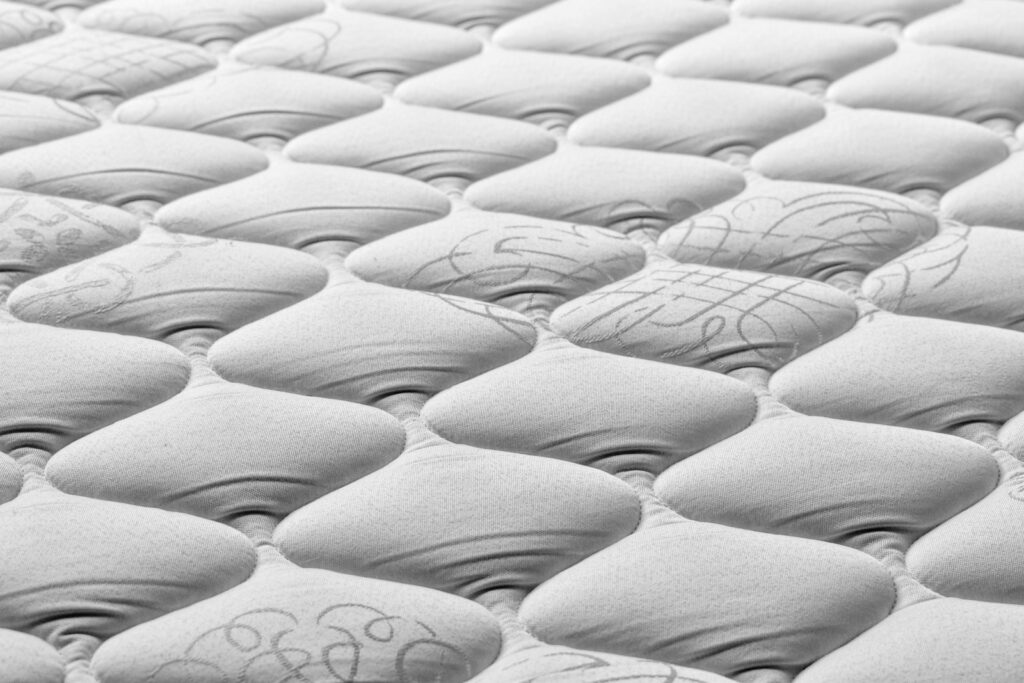Sleep Myths Debunked: Expert Shares His Advice On The Tips Which Are More Likely To Leave You Lying Awake At Night

A top sleep expert has debunked some of the biggest myths around getting forty winks.
Martin Seeley’s advice comes ahead of World Sleep Day tomorrow (on March 14) – which aims to promote the importance of a good night’s rest.
This year World Sleep Day, which aligns with the Friday before the Spring Equinox, aims to emphasise the need to address sleep disorders and promote healthy sleep habits.
But Sleep expert Martin, from MattressNextDay, said one of the biggest issues many face is misinformation: “There’s a lot of information out there about sleep – but a lot of it is dangerously wrong.”
Highlighting some of the biggest myths he says people fall for, Martin said: “The first is that your body gets used to a lack of sleep. We all see the stories of people like Donald Trump and Elon Musk existing on next to no sleep. And, of course, Margaret Thatcher famously claimed she could run the country on four hours sleep
“Yet research has found both short and long term negative effects of sleep deprivation, proving that your body does not adapt to lack of sleep. After a few nights of insufficient sleep, you are likely to feel sleepier during the day. This increase in daytime drowsiness may stabilize over weeks or months without enough sleep, but this does not mean that your body is functioning optimally or is effectively adjusting to sleep loss.
“The second myth is advice which suggests you should stay in bed as long as you can if you can’t fall asleep. Wrong. Instead of tossing and turning in bed, it can be better to get up, do something relaxing in a quiet and dim setting such as reading a book – without using your smartphone or other electronic devices – and then try to go back to bed once you begin to feel drowsy.
“Another one I often hear is that a couple of beers or a glass of wine before bed is the perfect way to sleep more soundly. No. A drink or two can be relaxing, inducing drowsiness that makes it easier to initially fall asleep. However, the quality of sleep declines considerably.
“It’s also suggested sleeping with the light on is harmless. This is not the case. It is best to sleep in a room that is as dark as possible. Even when you are in bed with your eyes closed, low light can increase the risk of awakenings.”
Here Martin shares his tips for a better night’s sleep:
- Set yourself a sleep routine
Our sleep is determined by our circadian rhythm which is why having a routine for bedtime is central to getting good quality sleep. Start with setting yourself some steps every night before going to bed, such as dimming the lights, listening to relaxing music or maybe meditating. Over time, your brain recognises these cues and realises it’s time for sleep.
You should also establish a consistent bedtime and wake time and stick to it as much as possible, even over the weekends.
- Make your bedroom a haven for good sleep
Our sleep environment plays a huge part in how well we sleep. A dark, quiet room is best for promoting restful sleep and ensuring the temperature is right can stop you waking up in the night. Soothing smells like lavender can promote relaxation which you can get in the form of pillow sprays or a reed diffuser. And don’t underestimate the importance of a comfortable mattress, pillow and bedding.
- Shower before bed
Even if you work in an office, your skin and hair collects huge amounts of bacteria and airborne pollutants, including pollen, dirt, sweat and general germs. These then stay on your skin until you wash it off, so if you shower in the morning, you’re going to be transferring this grime into your bed while you sleep.
Your body also produces natural oils throughout the day. Sebum, the natural oil that stops your skin drying out, is at its highest production rate in the afternoon.
By showering at night, you cleanse your body of these impurities, preventing your pores from clogging up and causing acne, and promoting a more hygienic sleeping environment. This can become part of your sleep routine.
- Address any sleep disorders
Sleep disorders can arise from various factors, including underlying medical conditions, mental health issues, or lifestyle choices. Common sleep disorders include insomnia, sleep apnoea, narcolepsy, and restless legs syndrome. If you think there is an underlying issue causing problems with your sleep, you should start by keeping a sleep diary, including information such as daytime activities, what time you ate and whether you had any alcohol.
Snoring isn’t just annoying – it could also be a sign of sleep apnoea which may need medical treatment as it can lead to hypertension, diabetes and other serious health problems.
- Swap pyjamas for your birthday suit
23% of us prefer to sleep naked, and research shows there could be some significant health benefits to this, with the biggest being temperature regulation. As we sleep, our body temperature drops, helping us produce melatonin. It rises again towards the morning to help you wake up.
Sleeping naked aids this process, as no heat-trapping pyjamas are getting in the way of your core temperature dropping. Overheating can seriously hinder your chances of a deep sleep, so sleeping naked means your body can easily dissipate heat and cool you down, especially if you tend to sweat during the night.
Image Source: Unsplash





